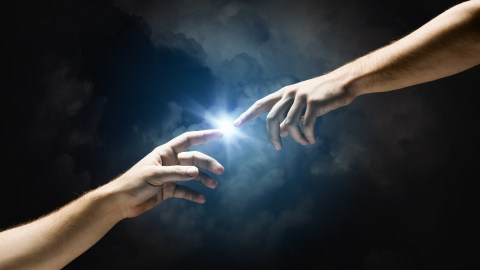Survey Questions Lead Americans to Doubt (Some) Creationist Beliefs

For the last three decades, Gallup has asked Americans the following question:
Which of the following statements comes closest to your views on the origin and development of human beings:
(1) human beings have evolved over millions of years from other forms of life and God guided this process,
(2) human beings have evolved over millions of years from other forms of life, but God had no part in this process, or
(3) God created human beings pretty much in their present form at one time within the last 10,000years or so?
The number that have answered “God created human beings pretty much in their present form at one time within the last 10,000 years or so,” has never dipped below 40 percent. From 1982 to 2014, America has answered strongly creationist, contrary to the theories and scientific proofs that say otherwise. But a new study sponsored by the BioLogos Foundation shows that the Gallup poll may have been too quick to judge Americans.
Slate’s William Saletan writes about Calvin College sociologist, Jonathan Hill, who headed a study to ask Americans about life’s origins. His results show a far more nuanced view of how Americans think about the evolution-creationism debate. Rather than asking one simple question to conclude the argument, he presses the people he’s surveying to assess 15 statements. The more the statements ask people to think about the history of the Bible (i.e. Were Adam and Eve real people? Is the Bible the actual or inspired word of God, without error?), the more doubtful people become. By the end of his survey the young-earth creationist dwindles to a mere 15 percent–quite different form the Gallup’s proposed 40 percent.
Hill’s data shows that only 30 percent of people are certain “God created the world in six 24-hour days.” What’s more, only 26 percent of Americans are able to say with certainty, in the survey, that humans have only existed for the past 10,000 years.
By delving into the particulars of intelligent design, Hill creates questions surrounding an absolute belief in creationism. It seems people begin to realize that the existence of life isn’t as cut-and-dry as they might believe once they have to consider the particulars of such an event.
In his interview with Big Think, Bill Nye (the Science Guy), believes that people find it hard to accept evolution, because that would mean accepting death–everything we’ve learned will be gone. For some people that’s unimaginable.
Read more at Slate
Photo Credit: Sergey Nivens/Shutterstock




